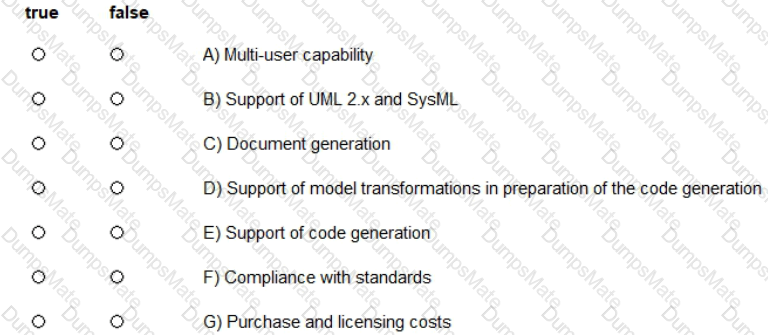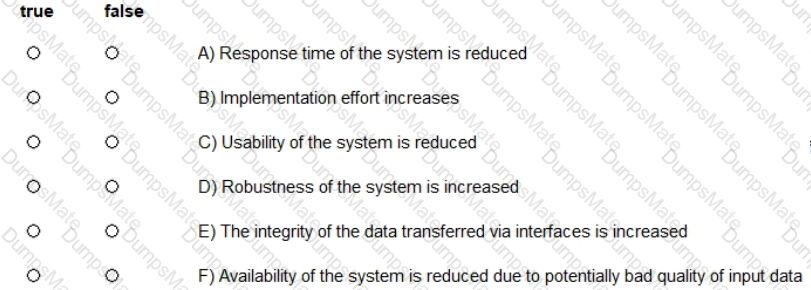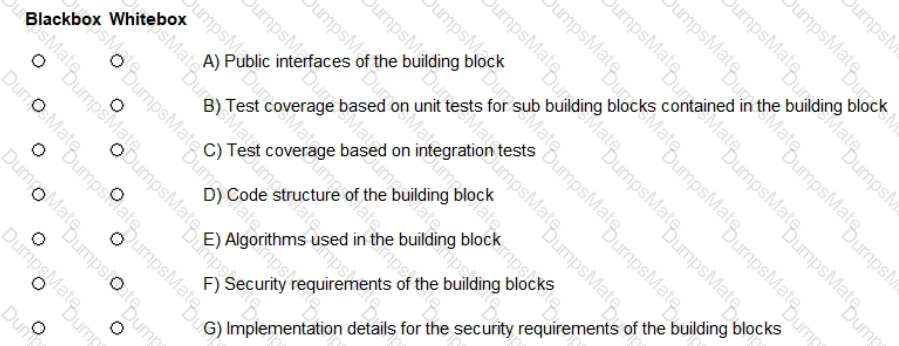Explanation: A) FalseB) FalseC) FalseD) TrueE) TrueF) False
Postel’s law, also known as the robustness principle, is a guideline in software engineering that advises to "be conservative in what you do, be liberal in what you accept from others"1. This principle has implications for system design and interaction with external interfaces:
A) Response time of the system is reduced: This is false. Postel’s law does not directly relate to the response time of a system1.
B) Implementation effort increases: This is false. Being liberal in what is accepted can actually simplify implementation because the system is designed to handle a wider range of inputs without failure1.
C) Usability of the system is reduced: This is false. Postel’s law aims to increase robustness and interoperability, which can enhance usability by making the system more resilient and accommodating1.
D) Robustness of the system is increased: This is true. By being conservative in outputs and liberal in inputs, the system becomes more robust, handling a variety of inputs without error1.
E) The integrity of the data transferred via interfaces is increased: This is true. Accepting a wide range of inputs and adhering strictly to output specifications helps maintain data integrity across different systems1.
F) Availability of the system is reduced due to potentially bad quality of input data: This is false. Postel’s law suggests that the system should be designed to handle poor quality input data gracefully, thus maintaining availability1.
Applying Postel’s law helps create systems that are more tolerant of input variations and strict in their outputs, contributing to overall system robustness and reliability1.
















